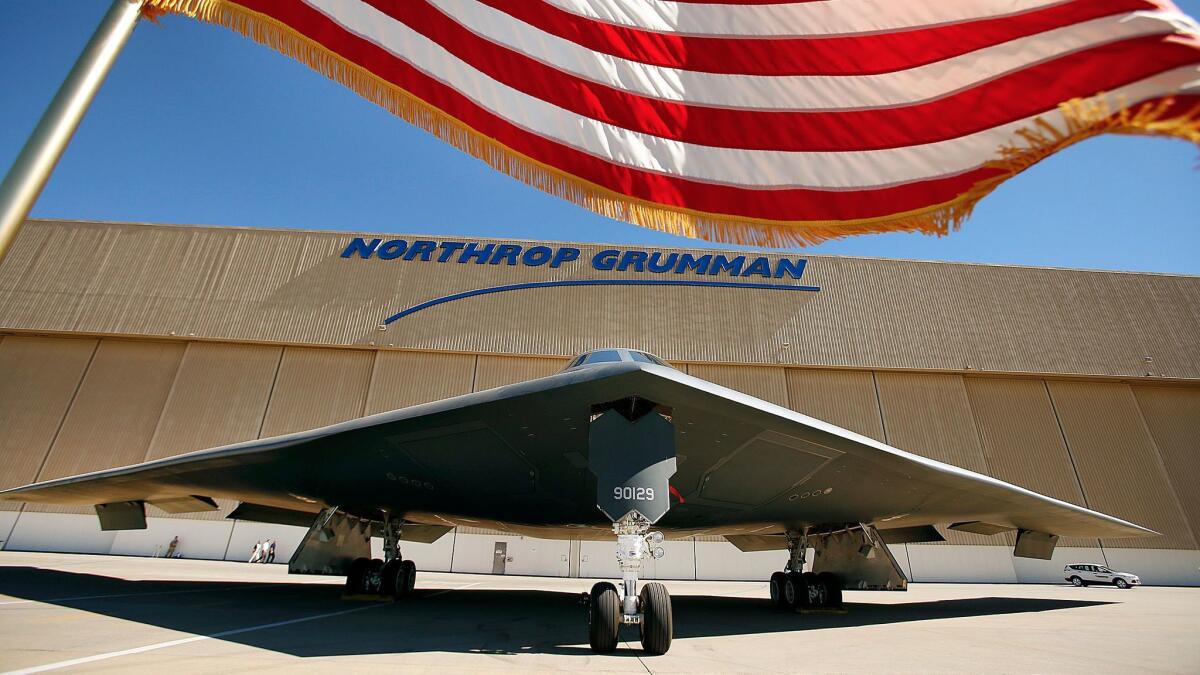Northrop Grumman’s $35-million contract may point to work on new stealth bomber

Defense giant Northrop Grumman Corp. has won a $35.8-million contract modification to build a new “coatings facility” at Air Force Plant 42 in Palmdale, a development probably related to one of the Pentagon’s largest military programs, the next-generation stealth B-21 bomber.
The contract notice, released Tuesday by the Department of Defense, states that the facility will be 45,900 square feet and is expected to be completed by Dec. 25, 2019. It was first reported by Defense News.
Tim Paynter, a Northrop Grumman spokesman, said in a statement that the contract award for the “additional facility at our Palmdale Aircraft Integration Center of Excellence is part of the company’s planned growth as we continue to meet our business objectives.”
The government contract notice does not mention the largely secretive B-21 bomber project by name, but Air Force Plant 42 is well-known as the final assembly location for the B-2 stealth bomber, which was manufactured by Northrop.
The company still performs maintenance on the boomerang-shaped planes at Plant 42.
The B-2 bomber has a dark gray, radar-absorbing coating, known as “alternate high-frequency material,” on its exterior surfaces.
In 2015, Northrop won a contract to build a new fleet of 80 to 100 long-range bombers, which could eventually cost more than $80 billion. A final assembly location has not yet been announced, but local government officials said two years ago that the company told them a large part of the B-21 bomber would be constructed at Plant 42.
Last April, Northrop won a $24.8-million contract to build a multi-story, steel-framed office complex in a “high bay production area” in Palmdale, according to a Department of Defense contract notice. That project, which is slated for completion in 2018, refers to the same contract number as that of the coatings facility.
More to Read
Inside the business of entertainment
The Wide Shot brings you news, analysis and insights on everything from streaming wars to production — and what it all means for the future.
You may occasionally receive promotional content from the Los Angeles Times.











